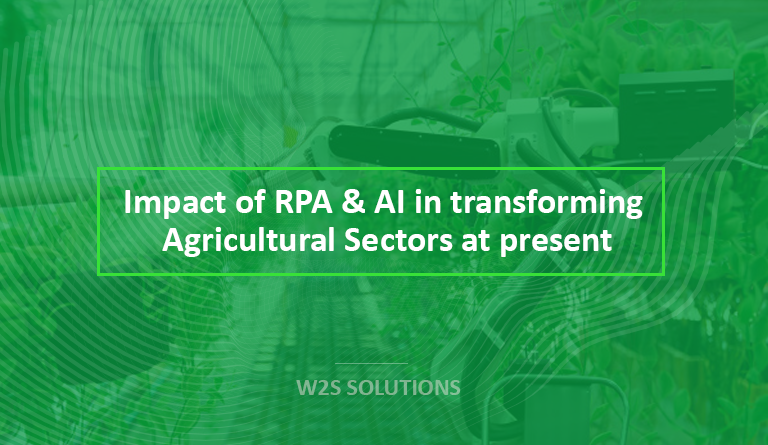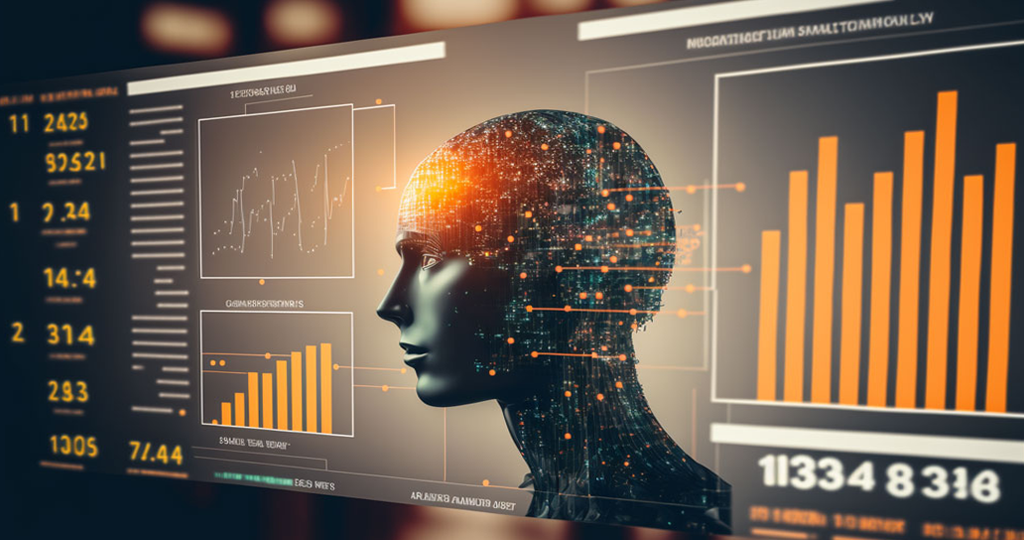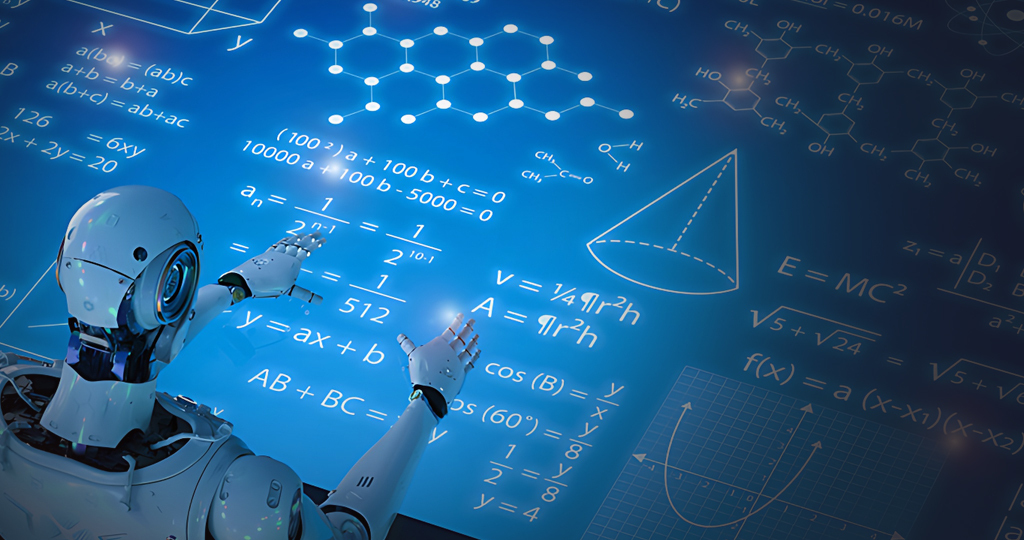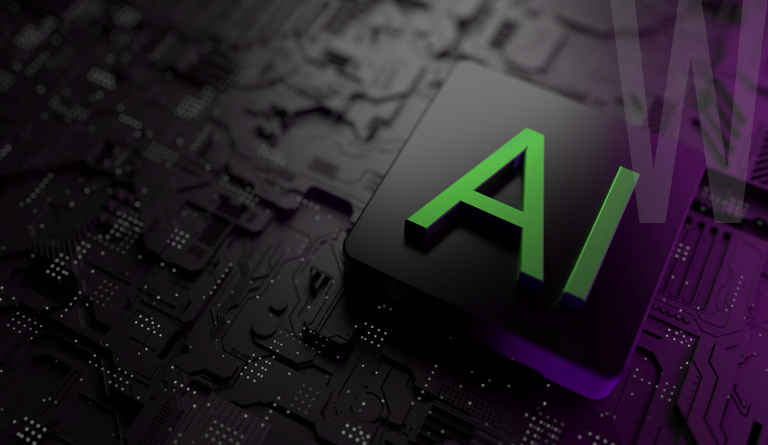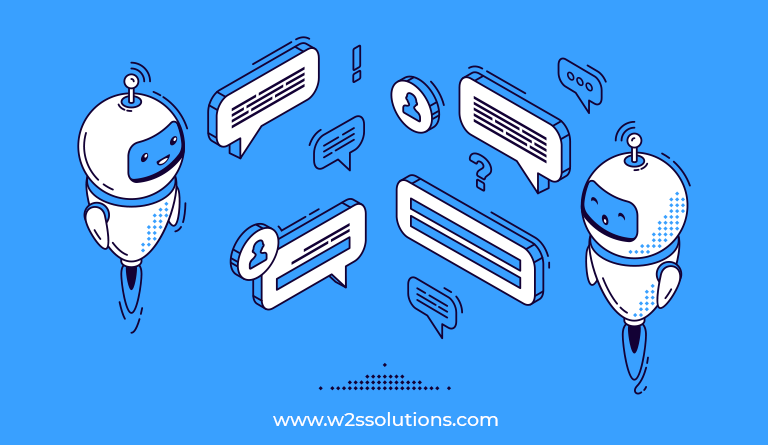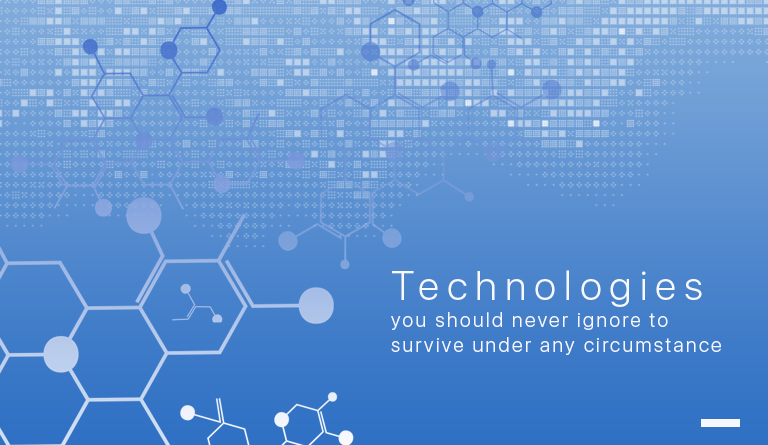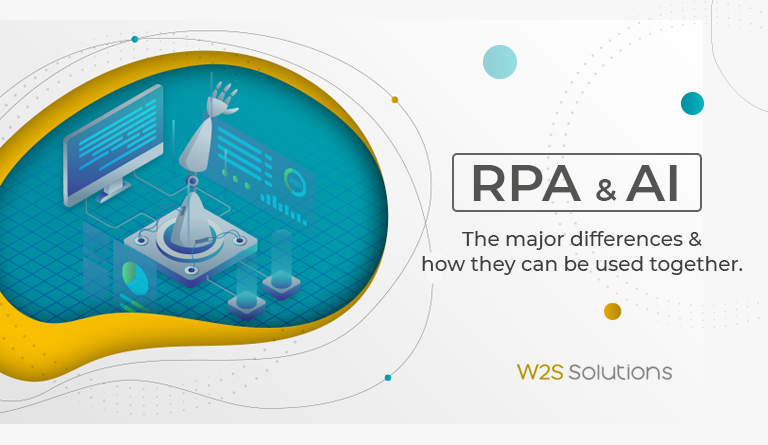The Agricultural Business is poised to litmus changes since digital technology and software solutions are getting liberally introduced, basically to satiate to the feed demands of 9.7 billion global population before 2050. Currently, the need for an increase in food production is nearly 60% high and the global farmers are more inclined towards making use of both RPA in Agricultural Sectors and AI in Agricultural Sectors to answer to the consummate needs of food and plants. It can constantly keep the farmer well informed about consumer preferences, latest technologies accessed in agriculture, and build successful pathways for smart farming and harvesting.
At best digital transformation consulting companies can effectively address these starvation problems by building RPA and AI-based Agritech Solutions and resolve to the unending challenges that prevail in the Agriculture Industry. In general, the need of the hour for any farmer is to tackle the climate changes, owe predominant responsibility for maintaining high efficiency in food production. There are many agriculture stakeholders prepared to do seasonal crop farming through processing a large sum of data and avert every kind of worse situation that hinders food productivity.
Read Also – The Role of RPA in the Education sector
Mobile App Development Companies are totally excited about building AI-enabled software solutions and increasing agricultural productivity through accessing limited resources and meet with the supply chain food demands, experiential across geographical regions. Moreover, the use of Artificial Intelligence in Agriculture is expected to rise exponentially to reach USD 2075 million by 2024 with already over 21% steep growth observed between 2018 and 2024 at the CAGR Committee. Some of the main challenges addressed by the enabler AI in transforming Agricultural Sectors are:
- The intermittent harvest seasons have impeded the fast agriculture data collection and thereby resist farmers from access to data analytics. AI devices have made the data collection process at remote locations to be done quicker and reliable for agriculture stakeholders to plow and reap the right crops.
- The fast transition of people moving from rural to urban areas would deplete the farm laborers and with the AI digital technologies kept in place, farmers can now work smarter and compensate for the losses in agricultural productivity.
Key Impacts of RPA and AI Software Solutions in Agricultural Sectors
Typically, RPA and AI-based technology solutions have the innate power to identify potential risks and uncertainties that exist in the Agriculture Industry thus, eliminate crop loss during harvest season. It should enable farmers to think ahead and respond perfectly to all informed decisions steered by climate and weather. Furthermore, the stakeholders could be incited to explore to more number of use cases provided by Data and AI Technology, make them answerable to the present adverse situations more responsibly. The key Impacts of RPA and AI transforming Agricultural Sectors are:
-
Intelligent Remote Monitoring
 Farmers can be given the direct benefits of AI-driven Sensors and IoT Devices to produce the most fertile crops in terms of high quantity and best quality. It will simplify the farm operations and complete the process of agriculture produce quite efficiently. These Sensors are extremely tiny and tactile for affixing them above and undergrounds, farms, etc., to collect the key data and to study the best plant to grow during monsoon seasons. Farmers can deploy and make use of Drones and Satellite to check the health status of the expected crop harvest and producing a higher yield to meet up with the sales forecast and food shortages.
Farmers can be given the direct benefits of AI-driven Sensors and IoT Devices to produce the most fertile crops in terms of high quantity and best quality. It will simplify the farm operations and complete the process of agriculture produce quite efficiently. These Sensors are extremely tiny and tactile for affixing them above and undergrounds, farms, etc., to collect the key data and to study the best plant to grow during monsoon seasons. Farmers can deploy and make use of Drones and Satellite to check the health status of the expected crop harvest and producing a higher yield to meet up with the sales forecast and food shortages.
Read Also- How the Sustainable Development Goals will be addressed with an Agricultural Data Tool?
-
Tackling Labour Challenges
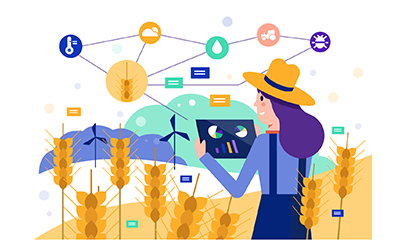
Only a few people happen to opt for the farming profession and already there is a dearth in the farm workforce with COVID-19 further aggravating this problem to identify the alternate solutions in farm management. Here is where RPA Agricultural Bots can be utilized to handle the shortage of plowing farmers and then get ahead to harvest the most productive crops while eliminating the weeds regularly to reduce the farming cost.
-
Optimizing Output
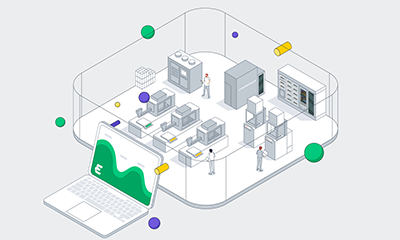
The many applications of AI in Agricultural Sectors can be realized through sheer data analytics and then determining those seasonal crops which can be grown according to the local climatic conditions. It should provide farmers the clarity to sow the right mix of crops on annual basis considering the various factors including soil profile, best pesticides, and weather forecast. Naturally, the farms can be used for reaping a better yield optimization and consequently the ROI in Agricultural Market.
Read Also – The Reality of Modern Farming Will Surprise You
-
Research and Development
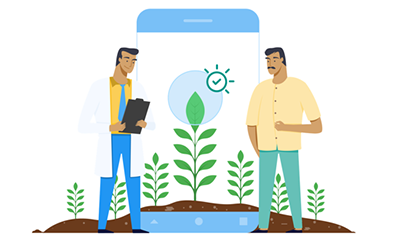
The local farmer can use Artificial Intelligence to enhance their trial and error harvest procedures to grow hybrid crops in quick succession. Eventually, it could mean a lot in terms of reducing agriculture harvest time and efforts. In this progress, your farm can be well maintained using algorithms and transform them to be arable land and a lot productive when growing hybrid plants and edibles. For example, an instance of breeding the corn hybrid from a variety of 500 corns took a prolonged time and the cost factor overall deviating from the norms. However, when utilized a 15-year molecular marker algorithm and the statistics of corn yield outputs the expected breed time of around eight years was strictly reduced to only seven years.
-
Virtual Assistance
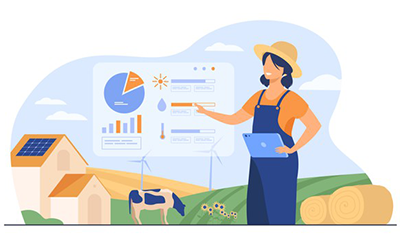
The prevalence of AI-based Chatbots is everywhere and its practical usage is early tapped potentially by a stake of IT consulting Firms to develop Agricultural AI ChatBots. A specialized form of virtual assistants is getting built with the capability to machine learn and further suggest farmers grow the best crops, illustrating most of the parameters on achieving smart farming. In addition, these chatbots are built all the most to support natural language processing which could help any farmer to the way ahead know the reason for arable land to plow, pesticide to secure crop, and grow plant based on the market demands.
-
Image Recognition
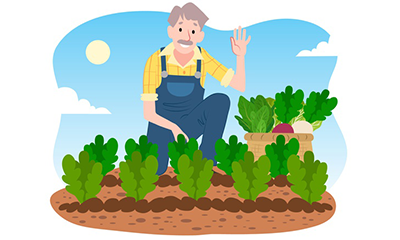
The present-day farmer is given access to Image Recognition based AI Systems and empowered to know the type of land necessary for cultivating different types of crops during monsoons and dry weather. It might help the farm owner to understand the crop yielding patterns over the early past times. Moreover, Drones can be utilized with image processing techniques to detect and purge the pest infected crops and unwanted plants from growing in the farms.
It can thereby help the farmers to:
- Come up with clear data insights.
- Make data-driven decisions.
- Monitor the crops from the live location.
Read Also – Agri Data Collection Tool – Use Case
-
The synergy of AI and IoT
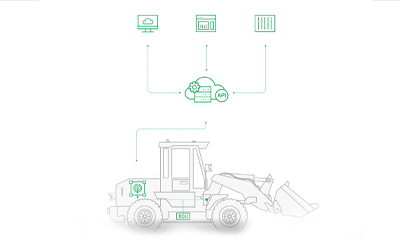
Smart Farming involves blending IoT and Artificial Intelligence Techniques to present a holistic picture of the month-wise weather prediction data, crop surveys, market demands, and soil conditions to hint and approve the local farmers on best harvest sessional crops and plants. Basically, all these suggestions are strictly derived using an AI System which possesses the capability to correlate large volumes of agricultural data and then infer only those profitable results, highly beneficial for stakeholders to invest wisely.
Conclusion
At present, the impact of RPA and AI is transforming the Agricultural Sector is fast becoming a great benefactor that might answer to all sorts of challenges raised against farm sustainability. Primarily, this would include farmers to know ahead of the accurate severity of threats and respond quickly to protect the growing crops with minimal environmental damage. RPA in Agriculture can be used to accelerate crop growth and then meet up with the market demands. The role of AI will get more intense especially for detecting crop disease and recommend appropriate pesticides. However, most of the merits of RPA and AI in Agriculture Farming is still in its nascent stages to properly be utilized amongst agribusiness owners, farmers, and investors.
